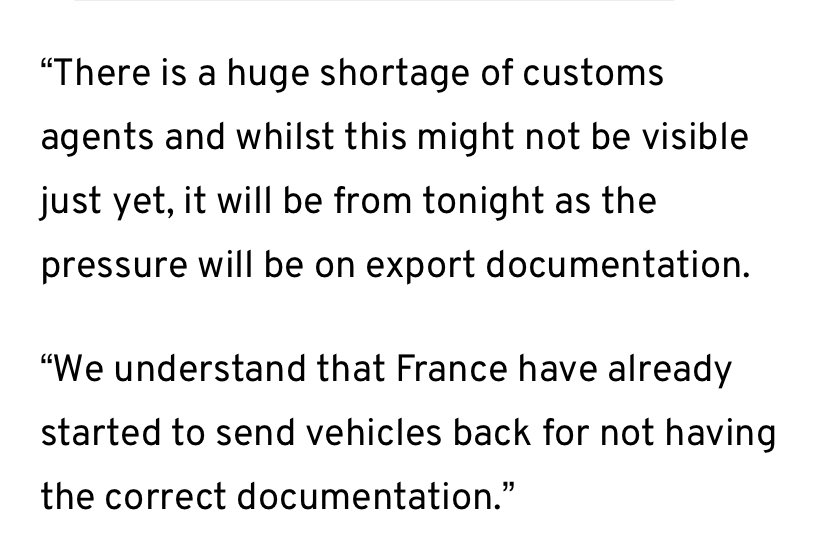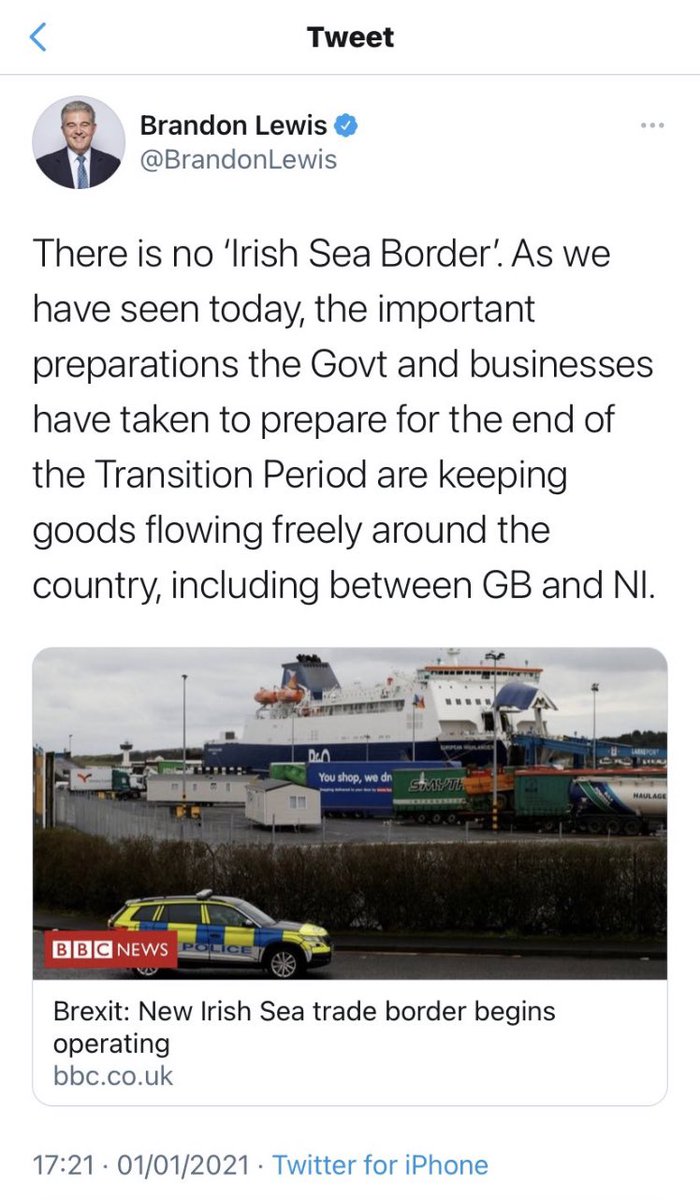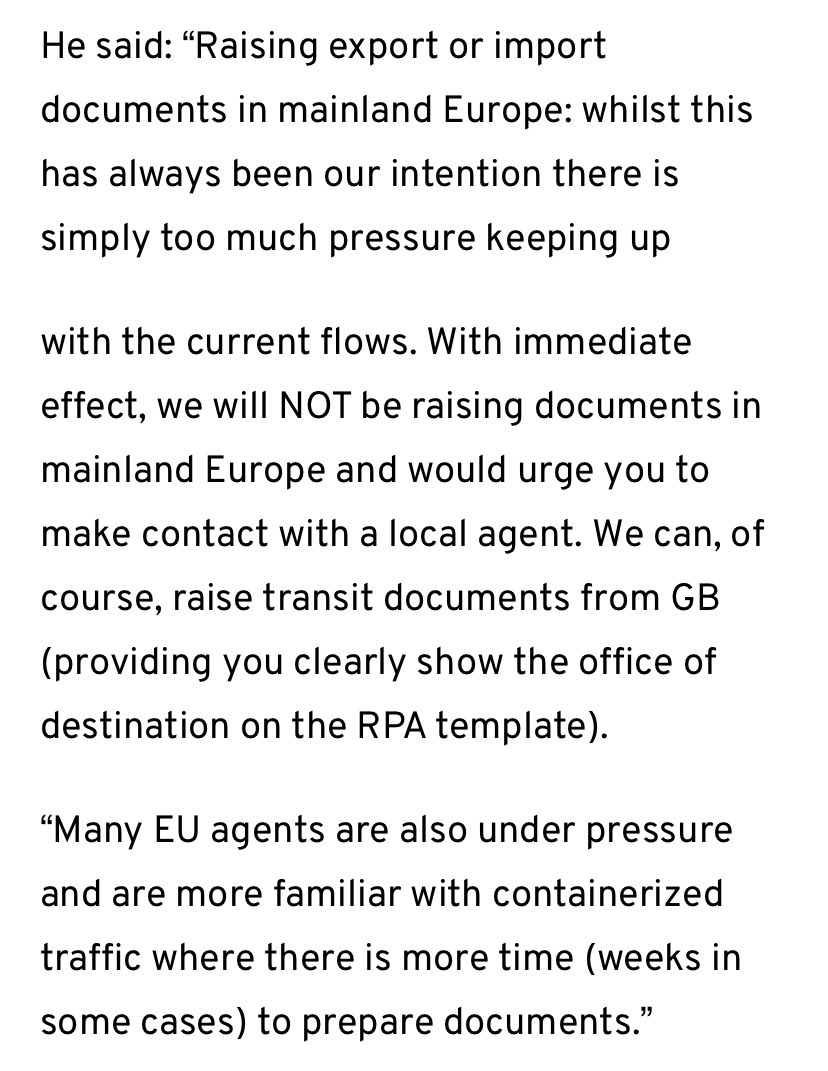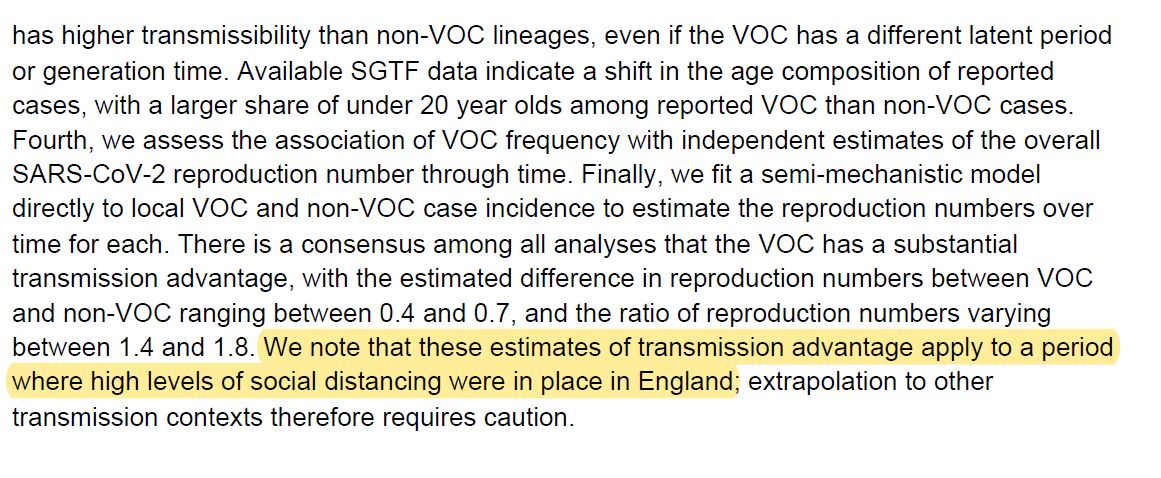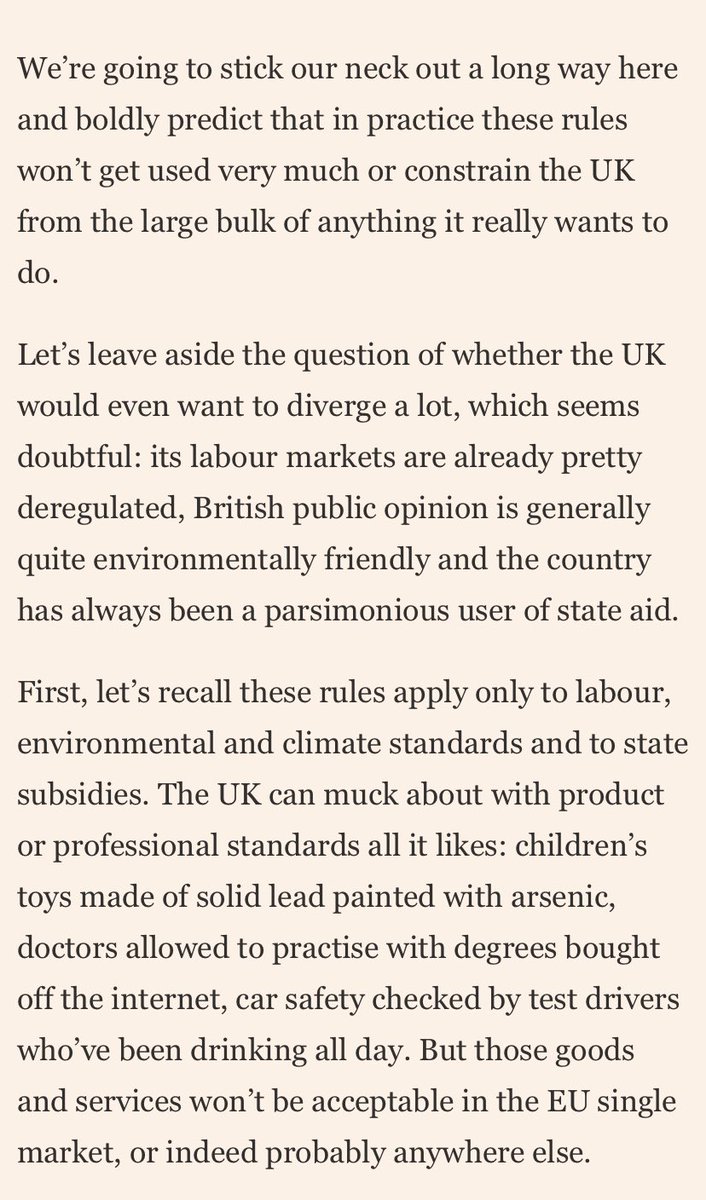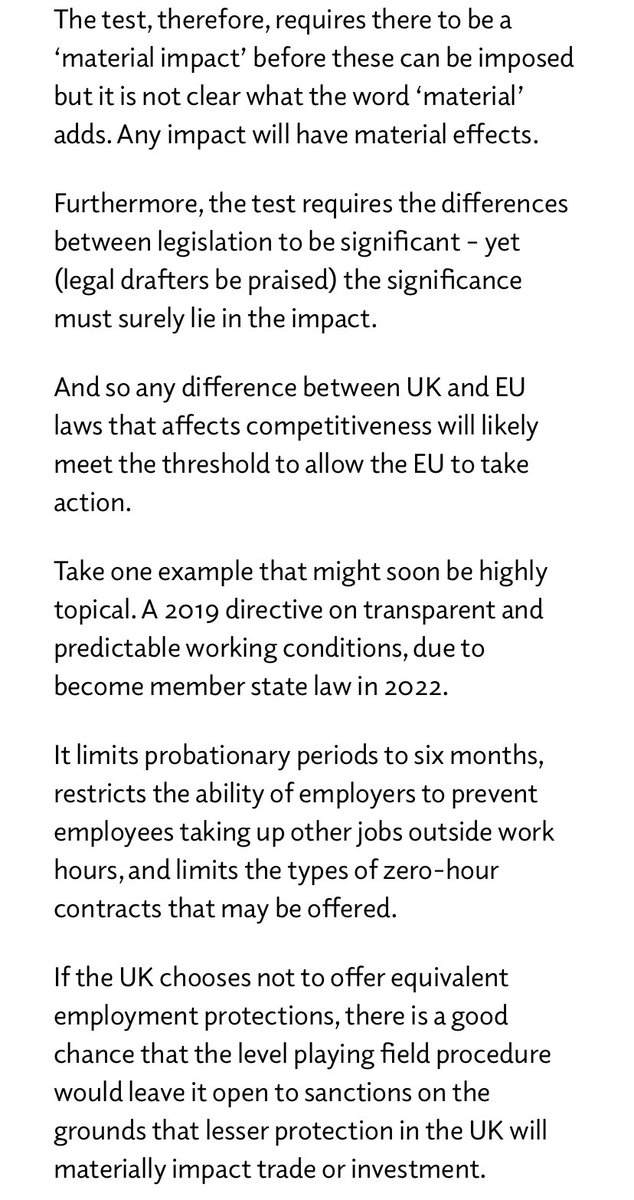
Everyone is afraid of a #brexit shitstorm next week on the Short Strait...one thing not appreciated fully is that lorries are getting on the boats in Dover (so obtaining barcode via French SI Brexit systèm) and *still* getting pulled/stuck at Calais /1
on.ft.com/3ntFLJG
on.ft.com/3ntFLJG

This is particularly true for those moving agri food products.
The haulier I spoke to yday moved a load of meat on Thurs lunchtime and was still stuck on Fri PM, despite his French customer going to Calais to see what problem was.
This haulier btw is one of best-prepared /2
The haulier I spoke to yday moved a load of meat on Thurs lunchtime and was still stuck on Fri PM, despite his French customer going to Calais to see what problem was.
This haulier btw is one of best-prepared /2
The point, as @RHARodMcKenzie says is that when @michaelgove says hauliers must “be ready” and “have the right documents” it isn’t that simple.
As I says hauliers/exporters are falling foul of rules they don’t yet appreciate. /3
As I says hauliers/exporters are falling foul of rules they don’t yet appreciate. /3
Here’s a list of five common problems from @RHARichardB and co - note one key issue is lack of agents, this will start to bite hard this week. /4 

But the fact that its apparently possible to board ferries and still not be in possession of correct docs is telling - I seem to remember @RobHardyFR8 warning of this at a select cmme while back. He’s also flagged agents shortage. /5
Another issue I’ve heard about is EU changing rules on its TRACES-NT system for declaring agri products so that you can’t raise a CHED [Common Health Entry Document] from a U.K. address. That haulier I mentioned was having “CHED” issues - oh the joys! /6
In short, as @ColdChainShane said in that great thread - steep learning curve ahead. As my colleague @MureDickie reports in the above-linked @ft story, fear is that some companies doing hard stuff (fish/shellfish) won’t make it. ENDS
• • •
Missing some Tweet in this thread? You can try to
force a refresh

